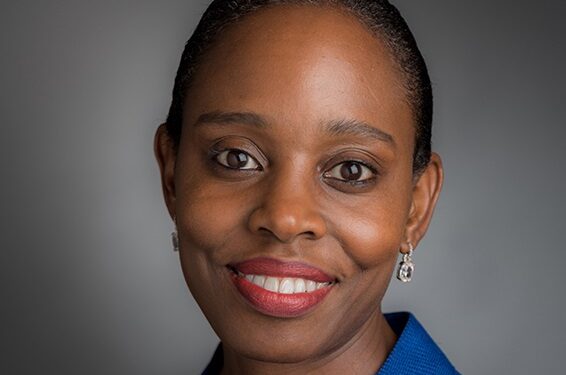A renowned Harvard hematologist, Maureen Okam Achebe, has called for the institutionalisation of continuous newborn screening across Nigeria and Africa as a critical step toward reducing the devastating impact of sickle cell disease.
Achebe, who is the clinical director of Hematology at Brigham and Women’s Hospital, and Associate Professor of Medicine and Global Health Equity at Harvard Medical School, stated this during a public lecture at the University of Abuja yesterday.
The lecture, hosted by the College of Health Sciences, was part of an ongoing series aimed at advancing health education and public engagement on critical diseases, especially those with a genetic basis like sickle cell anaemia.
She said, “Nigeria and Africa carry the burden of sickle cell disease. 300,000 babies are born every year in Africa, in sub-Saharan Africa with sickle cell disease.
150,000 of those babies are born in Nigeria, so we need to do what we can to improve the quality of life and most importantly the length of time those patients live well with us.
“The primary thing is to detect a baby who has sickle cell disease. Babies are born with sickle cell disease and they look completely normal. “We need to find those babies before they get sick and we need to do that by newborn screening.
“Newborn screening identifies babies who have sickle cell disease so that we can give them the few therapies that will make a significant difference in their life. We need to prevent pneumonia, we need to prevent malaria, and we need to give them vaccinations, we need to give them folic acid.
“We advocate for people to know their genotype, know whether they carry the trait, know whether there’s a possibility of them having a child with sickle cell disease and then making an informed decision.”
The acting vice-chancellor of the University of Abuja, Professor Patricia Manko, described the event as a major milestone for the university and the larger academic community.
The vice-chancellor, who was represented by the provost of the college, Professor Titus Ibekwe, noted that having a world-class expert such as Achebe address a public health issue so prevalent in Nigeria was deeply inspiring.
“So this is one in the series of our college lectures and it’s really very special to us because today Achebe all the way from Harvard University came down here to break down efforts being made towards making sure that support is given to those who live with sickle cell anaemia disease across the world, which we know is a prevalent disease, inherited disease within our client. It’s genetic, it’s transmitted from parents to offspring.
“She broke down the ABCD of sickle cell care from prevention to advanced treatment options like gene therapy and bone marrow transplant.”
Director of the Centre of Excellence for Sickle Cell Disease Research and Training (CESRTA) at the University of Abuja, Professor Obiageli Nnodu, noted that the university had recently hosted the 5th Global Congress on Sickle Cell Disease, where over 400 delegates from 60 countries gathered in Abuja.
She said the Congress was opened by Nigeria’s Coordinating Minister of Health and Social Welfare, Professor Muhammad Pate, who officially announced the Centre’s upgrade to a National Centre of Excellence.
According to Nnodu, the public lecture was deliberately planned to complement the Global Congress by reaching a wider audience, including medical students, local stakeholders, and the general public.
“We believe education and community engagement are vital in this fight. Knowing one’s genotype and making informed relationship choices is a powerful prevention tool,” she said.



